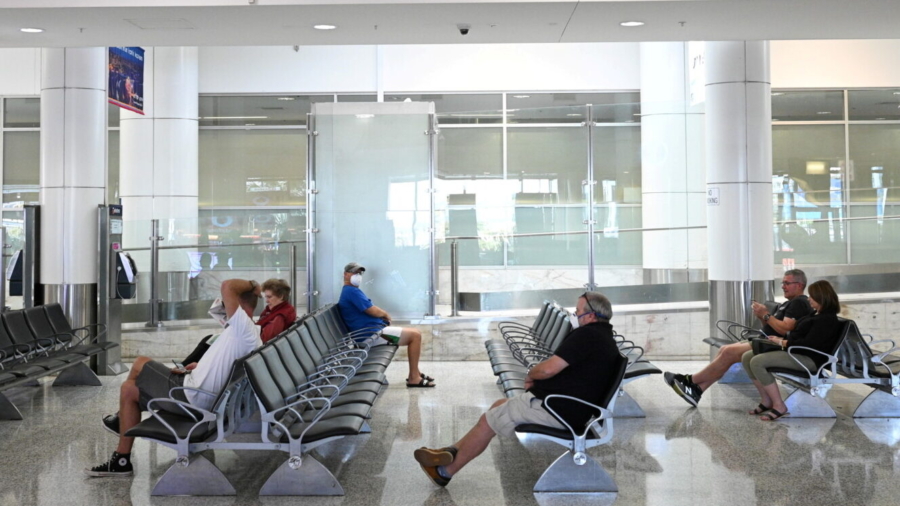Prime Minister Scott Morrison on Monday announced Australian officials have decided to delay the reopening of international borders by at least two weeks after several cases of the Omicron variant of the CCP virus were detected in the country.
“The temporary pause will ensure Australia can gather the information we need to better understand the Omicron variant, including the efficacy of the vaccine, the range of illness, including if it may generate more mild symptoms, and the level of transmission,” Morrison said in a statement.
Earlier this month, following nearly 600 days of closed borders, Australia welcomed its first quarantine and travel bubble-free international flights.
The country planned to continue its phased reopening on Dec. 1 by allowing foreign visa holders to cross its borders—the latest steps to restart international travel. The Australian border was shut in May 2020 and only restricted numbers of citizens and permanent residents were allowed to enter.
So far, Australia has detected five cases of the CCP (Chinese Communist Party) virus variant dubbed Omicron, which was first discovered in South Africa earlier this month.
The bulk of the cases have been detected in Australia’s most populous state of New South Wales, while another person who arrived in the Northern Territory from South Africa has also tested positive. Officials on Nov. 28 ordered a 14-day quarantine for citizens returning from nine African countries.
Businesses, health experts, and political leaders have urged Australians to stay calm after some media focused on the new Omicron variant of the CCP virus, fueling fears that the country could see the return of harsh restrictions.
“The worst thing we can do is panic,” Jennifer Westacott, CEO of the Business Council of Australia, told 3AW radio on Nov. 28. “The worst thing we can do is stall the economic momentum, particularly for small businesses.”
Australia delaying its phased plan to fully reopen is a blow to the country’s A$2 trillion ($1.4 trillion) economy, with employers long calling for a resumption of arrivals of students and skilled migrants to ease labor shortages. The return of foreign students alone is worth about A$35 billion a year to the Australian economy.
Neighboring New Zealand, which has closed its borders since early 2020, said it would go ahead with a planned relaxation of domestic movement restrictions from this week, regardless of Omicron.
Besides Australia, cases of the new CCP virus strain have also been detected in a variety of areas, including Belgium, Canada, Hong Kong, Israel, and the United Kingdom. No cases have been identified in the United States, but government health officials are divided as to whether Omicron has arrived yet.
Reuters contributed to this report.


